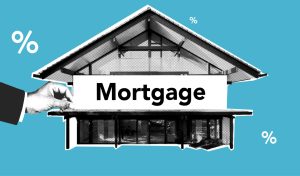The Comprehensive Roadmap to Successful Real Estate Marketing
In today’s digital world, effective real estate marketing is essential for success in the highly competitive market. With advancements in technology and the constant evolution of consumer behavior, the old traditional methods of marketing are no longer enough. Real estate professionals need to adapt to the changing landscape and utilize the power of digital marketing to stand out in the crowd and attract potential buyers and sellers. In this comprehensive roadmap, we will guide you through the essential steps to create a successful real estate marketing strategy that will drive results and boost your business.
Know Your Target Audience
Before jumping into any marketing tactic, it is crucial to understand your target audience. Who are your potential buyers and sellers? What are their demographics, interests, and needs? Knowing your ideal customer will help you tailor your marketing efforts to resonate with them effectively. You can conduct market research, analyze your past clients, or even use data from social media platforms to gather valuable insights on your target audience.
Create a Strong Online Presence
In today’s digital age, having a robust online presence is a must for any real estate professional. Your website is your virtual storefront, and it needs to be attractive and user-friendly. Make sure to have high-quality professional photos of your properties, along with detailed descriptions and virtual tours. Additionally, invest in search engine optimization (SEO) to make sure your website appears on the first page of search engine results when potential clients are looking for properties in your area. Utilize social media platforms like Facebook, Instagram, and LinkedIn to showcase your listings and engage with your audience.
Utilize Email Marketing
Email marketing is a cost-effective way to stay in touch with your potential clients and keep them updated on new listings, market trends, and other relevant information. Building an email list can be done by offering valuable resources on your website, such as e-books or newsletters. Make sure to provide relevant and useful information in your emails to keep your subscribers engaged and interested in your services.
Collaborate with Other Professionals
In the real estate industry, collaboration is key. Partnering with other professionals such as photographers, home stagers, and contractors can help take your marketing to the next level. Additionally, network with other real estate agents and brokers, attend industry events, and join online forums to build relationships and expand your reach.
Utilize Video Marketing
With the rise of platforms like YouTube and TikTok, video marketing has become an essential tool for real estate professionals. Creating video tours of your properties, informational videos, or behind-the-scenes glimpses of your business not only helps with showcasing your properties but also adds a personal touch to your brand.
Stay Up-to-Date with Market Trends
The real estate market is constantly evolving, and it is crucial to stay updated with the latest trends and technologies. Follow real estate news, industry blogs, and social media accounts to keep yourself informed. You can also attend events and seminars to learn from experts and implement innovative strategies in your own marketing plan.
Measure Results and Make Adjustments
A successful marketing strategy is not a one-time effort. It requires ongoing monitoring, measurement, and adjustments. Make sure to track your marketing efforts’ results and analyze what tactics are working and what needs improvement. Monitor website analytics, email open rates, social media engagement, and other key performance indicators to understand your marketing’s effectiveness and make necessary changes to achieve your goals.
In conclusion, a successful real estate marketing strategy requires a combination of online and offline efforts, staying up-to-date with market trends, and continuous monitoring and adjustments. By utilizing this comprehensive roadmap, you can create a strong and effective marketing plan that will help you stand out in the competitive real estate market and achieve your business goals.











